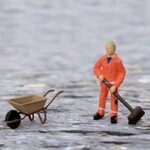In an era where scientific integrity is often put to the test, Representative Zoe Lofgren of San Jose is stepping into the spotlight to address the political ramifications of funding cuts that threaten critical research initiatives. With a steadfast commitment to advancing scientific discovery and innovation, Lofgren has publicly condemned former President Donald Trump’s administration for its proposed reductions in funding that impact key scientific programs. As debates around science funding intensify, Lofgren’s statements shed light on the broader implications of these decisions for public health, climate change research, and technological advancement. This article explores Lofgren’s position, the political context surrounding the cuts, and the potential consequences for the scientific community and society at large.
Implications of Federal Research Cuts on Scientific Innovation
The recent federal budget cuts, particularly those outlined in the administration’s proposals, stand to significantly hinder the progress of scientific research and innovation across various disciplines. Funding reductions can directly impact critical sectors such as healthcare, climate science, and technology development. Experts warn that this decline in government investment may lead to the following consequences:
- Reduced Research Funding: Essential grants and financial support for ongoing projects may be slashed, limiting researchers’ ability to explore groundbreaking ideas.
- Talent Migration: Scientists and researchers may seek opportunities abroad, diminishing the local talent pool and innovation capacity.
- Delayed Discoveries: Key advancements in medicine or technology may slow down, affecting not just academic interests but public health and safety.
In response, leaders like Rep. Zoe Lofgren have vocally criticized these budget decisions, stressing the long-term impacts on American competitiveness in global innovation landscapes. The erosion of federal support for scientific inquiry poses a detrimental risk not only to academia but to the national economy as a whole. As the U.S. navigates challenges such as pandemics and climate change, scientists are increasingly seen as crucial to the nation’s ability to respond effectively. The following table illustrates the potential fallout from these funding reductions:
| Area Affected | Impact of Cuts |
|---|---|
| Healthcare Research | Slower progress in drug development and treatment options. |
| Environmental Studies | Hindering climate change mitigation strategies. |
| Technology Innovation | Reduced funding for essential R&D programs exacerbates technological lag. |
Lofgren’s Stance: Defending Science Amid Political Turbulence
In a bold stance against the current administration’s recent budget cuts, Rep. Zoe Lofgren of San Jose has emerged as a vocal defender of science and research funding. Highlighting the potential consequences of these cuts, she emphasizes that the reductions threaten not only technological advancement but also public health and safety. Lofgren argues that the infusion of federal funds is crucial for various sectors, including:
- Medical Research: Ensuring continued innovation in treatments and understanding of diseases.
- Climate Science: Addressing one of the most pressing global challenges through improved environmental studies.
- Education Programs: Supporting STEM initiatives that cultivate the next generation of scientists.
During recent congressional debates, Lofgren pointed out alarming statistics that illustrate the direct impact of these funding cuts. For instance, a reduction of funding for the National Institutes of Health could result in:
| Impact Area | Projected Consequence |
|---|---|
| Clinical Trials | Delayed medical breakthroughs |
| Research Grants | Fewer scientists entering the field |
| Public Health | Increased risks of undetected diseases |
As Lofgren presses lawmakers to reevaluate the budgetary measures concerning scientific research, she insists that bipartisan collaboration is essential to strengthen America’s commitment to innovation. Her advocacy reflects a growing concern among scientists and educators that political decisions should not undermine the foundational work necessary for future advancements.
Strategies for Advocating Research Funding in a Challenging Landscape
As research funding faces unprecedented challenges, advocates must leverage strategic communication to highlight the critical importance of sustained financial support for science. By building coalitions among universities, research institutions, and local businesses, stakeholders can create a united front that underscores the economic and societal benefits of research initiatives. Key strategies include:
- Engaging Community Leaders: Mobilize local influencers who understand the potential of research to drive economic growth.
- Utilizing Data: Present compelling data that connects research funding to tangible outcomes, such as job creation and technological advancements.
- Campaigning for Stories: Share personal testimonials from researchers whose work directly impacts communities, making the case for funding more relatable.
Additionally, navigating the political landscape requires careful monitoring of funding trends and budget proposals. Advocates should maintain an active presence in legislative discussions and conduct outreach to policymakers through tailored arguments that resonate with their constituents. Organizing workshops and forums can also serve as effective platforms for raising awareness and support among the public. A summary of potential funding sources is outlined in the table below:
| Funding Source | Focus Area | Eligibility |
|---|---|---|
| NIH | Health & Medicine | Public & Private Institutions |
| NSF | Science & Engineering | Research Universities & Collaborations |
| DOE | Energy Research | Nonprofits & Research Teams |
Insights and Conclusions
In conclusion, Rep. Zoe Lofgren’s outspoken criticism of former President Trump’s proposed budget cuts highlights a growing concern among lawmakers regarding the future of scientific research in the United States. As the nation grapples with pressing challenges-ranging from climate change to public health-investments in science and technology remain crucial for innovation and progress. Lofgren’s efforts underscore the importance of bipartisan support for research funding, as a robust scientific infrastructure is vital not only for economic growth but also for addressing the complex issues facing society today. As the political landscape continues to evolve, the interplay between science and policy will be a key area to watch, determining how effectively the nation can leverage its scientific capabilities in the years to come.









